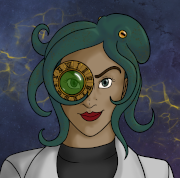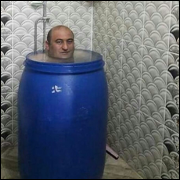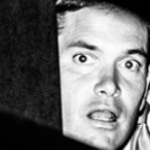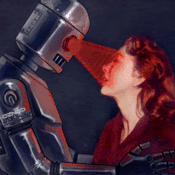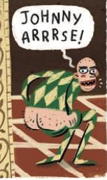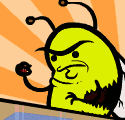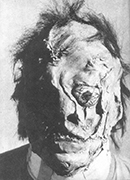|
Welcome goonlings to the Awful Book of the Month! In this thread, we choose one work of Resources: Project Gutenberg - http://www.gutenberg.org - A database of over 17000 books available online. If you can suggest books from here, that'd be the best. SparkNotes - http://www.sparknotes.com/ - A very helpful Cliffnotes-esque site, but much better, in my opinion. If you happen to come in late and need to catch-up, you can get great character/chapter/plot summaries here.  For recommendations on future material, suggestions on how to improve the club, or just a general rant, feel free to PM me. For recommendations on future material, suggestions on how to improve the club, or just a general rant, feel free to PM me.  Past Books of the Month [for BOTM before 2015, refer to archives] 2015: January: Italo Calvino -- Invisible Cities February: Karl Ove Knausgaard -- My Struggle: Book 1. March: Knut Hamsun -- Hunger April: Liu Cixin -- 三体 ( The Three-Body Problem) May: John Steinbeck -- Cannery Row June: Truman Capote -- In Cold Blood (Hiatus) August: Ta-Nehisi Coates -- Between the World and Me September: Wilkie Collins -- The Moonstone October:Seth Dickinson -- The Traitor Baru Cormorant November:Svetlana Alexievich -- Voices from Chernobyl December: Michael Chabon -- Gentlemen of the Road 2016: January: Three Men in a Boat (To say nothing of the Dog!) by Jerome K. Jerome February:The March Up Country (The Anabasis) of Xenophon March: The Name of the Rose by Umberto Eco April: Plain Tales from the Hills by Rudyard Kipling May: Temple of the Golden Pavilion by Yukio Mishima June:The Vegetarian by Han Kang July:Lud-in-the-Mist by Hope Mirrlees August: Pale Fire by Vladimir Nabokov September:Siddhartha by Herman Hesse October:Right Ho, Jeeves by P.G. Wodehouse November:Kitchen Confidential by Anthony Bourdain December: It Can't Happen Here by Sinclair Lewis 2017: January: Mother Night by Kurt Vonnegut February: The Plague by Albert Camus March: The Dispossessed by Ursula K. LeGuin April: The Conference of the Birds (مقامات الطیور) by Farid ud-Din Attar May: I, Claudius by Robert Graves June: Salt: A World History by Mark Kurlansky July: Ficcionies by Jorge Luis Borges August: My Life and Hard Times by James Thurber September: The Peregrine by J.A. Baker October: Blackwater Vol. I: The Flood by Michael McDowell November: Aquarium by David Vann December: Sir Gawaine and the Green Knight [Author Unknown] 2018 January: Njal's Saga [Author Unknown] Current:  Book available here: Project Gutenberg : https://www.gutenberg.org/files/2097/2097-h/2097-h.htm https://www.amazon.com/New-Annotated-Sherlock-Holmes-Slipcased/dp/039305800X Absolutely excellent Jeremy Brett television adaptation of the story here: https://www.youtube.com/watch?v=aAKCyfpcOIs About the book: quote:Sherlock Holmes took his bottle from the corner of the mantelpiece and his hypodermic syringe from its neat morocco case. With his long, white, nervous fingers he adjusted the delicate needle, and rolled back his left shirt-cuff. For some little time his eyes rested thoughtfully upon the sinewy forearm and wrist all dotted and scarred with innumerable puncture-marks. Finally he thrust the sharp point home, pressed down the tiny piston, and sank back into the velvet-lined arm-chair with a long sigh of satisfaction. On August 30, 1889, Joseph Stoddart, the editor of Lippincott's Monthly Magazine, had dinner with Oscar Wilde and Arthur Conan Doyle at the Langham Hotel. Lippincott wanted novella-length works from well-known authors to help launch his magazine. As a result of that dinner, Oscar Wilde wrote and sold Lippincott The Picture of Dorian Gray; Doyle dusted off an old character he'd written about once before, four years ago, and brought him and his friend Watson back for the second published adventure of Sherlock Holmes: The Sign of the Four. Why this particular Holmes story over others? I have reasons, but I'll keep them in the persian slipper by the fireplace until later in the thread. About the Author quote:Sir Arthur Ignatius Conan Doyle, KStJ, DL (22 May 1859 – 7 July 1930) was a British writer best known for his detective fiction featuring the character Sherlock Holmes. Originally a physician, in 1887 he published A Study in Scarlet, the first of four novels about Holmes and Dr. Watson. In addition, Doyle wrote over fifty short stories featuring the famous detective. The Sherlock Holmes stories are generally considered milestones in the field of crime fiction. quote:Doyle was also a fervent advocate of justice and personally investigated two closed cases, which led to two men being exonerated of the crimes of which they were accused. The first case, in 1906, involved a shy half-British, half-Indian lawyer named George Edalji who had allegedly penned threatening letters and mutilated animals in Great Wyrley. Police were set on Edalji's conviction, even though the mutilations continued after their suspect was jailed.[57] Apart from helping George Edalji, Doyle's work helped establish a way to correct other miscarriages of justice, as it was partially as a result of this case that the Court of Criminal Appeal was established in 1907.[58] https://en.wikipedia.org/wiki/Arthur_Conan_Doyle quote:But by the end of his life, on July 7, 1930, Conan Doyle was a fervent believer in spiritualism, having spent decades researching ghosts, fairies and the paranormal. His fascination with the supernatural grew after his son Kingsley and his younger brother, Innes, battle-weary from service in World War I, died amid the worldwide influenza pandemic shortly after returning home. quote:Doyle . . .wanted above all to be considered a serious writer, and it was no consolation that he had created the most enduring character of modern literature. Sherlock Holmes is the winning child whom everyone loves except his father. "I believe," Conan Doyle once sadly wrote, "that if I had never touched Holmes, who has tended to obscure my higher work, my position in literature would at the present moment be a more commanding one." quote:T. S. Eliot remarked, "Perhaps the greatest of the Sherlock Holmes mysteries is this: that when we talk of him we invariably fall into the fancy of his existence" -- and as for Arthur Conan Doyle, "what has he to do with Holmes?" http://www.weeklystandard.com/the-man-who-hated-sherlock-holmes/article/11275 quote:By 1893, Doyle had resolved to kill Holmes—"even if I buried my bank account with him," he wrote in his autobiography. He set the scene at Reichenbach Falls, an Alpine cascade in Switzerland. Doyle's editors despaired, but the author felt only relief: "I have been much blamed for doing that gentleman to death, but I hold that it was not murder, but justifiable homicide in self-defense, since, if I had not killed him, he would certainly have killed me." https://www.wsj.com/articles/SB10001424052748704240504574585840677394758 Themes Lots of directions to go here, but two possible angles to spark discussion: -- what does it mean to be an "iconic character" ? Is there anything useful to say about Sherlock Holmes as a notion? -- How goddam Victorian is this? Colonialism, empire, evil from abroad . . . -- "Sherlockian Scholarship" and the "Great Game": one popular enterprise, for the past hundred years or so, has been to posit that Holmes and Watson were real people, and then try to do things like figure out the "real" identities and places behind the stories; where Baskerville Hall really was, etc. Why this urge? Pacing Read as thou wilt is the whole of the law. Please bookmark the thread to encourage discussion. Since it's a mystery, try to use spoiler tags where appropriate, but it is a hundred years old so no big deal if you don't. References and Further Reading http://www.nytimes.com/1989/11/05/world/sherlock-holmes-s-mail-not-too-mysterious.html Final Note: Thanks, and I hope everyone enjoys the book!
|
|
|
|
|

|
| # ? Apr 29, 2024 20:41 |
|
C'mon folks! It's Sherlock! Everybody loves Sherlock! There's cocaine!
|
|
|
|
|
Hieronymous Alloy posted:C'mon folks! It's Sherlock! Everybody loves Sherlock! For some reason my library has 3 different audiobook versions of this, so hopefully the one that is available doesn't have some ear grinding narrator or something. For any other audiobook people out there, it's only about 4 hours. Snort some cocaine, set it on 2x, and it's faster than watching the Robert Downey Jr. movies.
|
|
|
|
I should check this out, a copy just sort of appeared at my door a few weeks back.
|
|
|
|
My community college actually has this one in stock, unlike Njal, so I get to read a physical copy. I also started classes last month so I was able to ask my English teacher for advice on reading The Sign of the Four more critically/deeply. She said to read it for pleasure, but keep a pencil in my hand. Lol, when I said I probably shouldn't write all over the margins of the library copy she was less than immediate in her agreement. Still, I'll keep a little notebook or something handy.
|
|
|
|
I started with this yesterday, it's a fun read so far. Regarding chapter 3 or 4: Loved the goony dweeb twin. It is really weird though, I very clearly recognize some bits while others are completely foreign. Either I've read this story a long time ago and forgotten most of it, or there's just certain scenes that I've absorbed thanks to the sheer presence of Sherlock in pop culture.
|
|
|
ovenboy posted:I started with this yesterday, it's a fun read so far. Regarding chapter 3 or 4: Loved the goony dweeb twin. One interesting note is that Doyle apparently based a fair bit of that character on Oscar Wilde : quote:[The character is] . . . a superaesthete who talks like Oscar Wilde and who even has several physical features which clearly identify him as the man whom Conan Doyle called "the champion of aestheticism." The obviously effeminate and effete Sholto reveals himself as a caricature of Wilde with his opening remarks: "Pray step into my sanctum. A small place ... but furnished to my liking, an oasis of art in the howling desert of London." http://www.mr-oscar-wilde.de/about/d/arthur_doyle.htm The guy who plays Sholto in the Brett adaptation linked above does a particularly good job (first appearance here: https://www.youtube.com/watch?v=aAKCyfpcOIs&t=1051s ) quote:It is really weird though, I very clearly recognize some bits while others are completely foreign. Either I've read this story a long time ago and forgotten most of it, or there's just certain scenes that I've absorbed thanks to the sheer presence of Sherlock in pop culture. Yeah, you probably have and that's something that is worth talking about I think. It's not just, say, BBC Sherlock with Boodlypat Cummerbund -- you'll see the bones of these stories popping up in everything from Scooby-Doo to Ducktales. tetrapyloctomy posted:I should check this out, a copy just sort of appeared at my door a few weeks back. ^_^ Yeah, I got my copy down off the shelf and realized it would be a good BoTM pick -- out of copyright, free, eminently readable, but with enough meat there to foster some discussions. Hieronymous Alloy fucked around with this message at 19:49 on Feb 10, 2018 |
|
|
|
|
Aight I'm gonna try to get through this one. Last Sherlock I read was The Hound of the Baskervilles when I was in middle school. Excited to see how colonialism is represented.
|
|
|
|
I like the part where Watson gets mad at Holmes for not ogling Ms. Morstan.
|
|
|
|
I'm currently reading "Murders in the Rue Morgue" for the first time, and it basically reads like a Holmes case. Was Doyle influenced by this, or do both Poe and Doyle build on an archetype or genre that was popular in the 19th century?
|
|
|
|
Though his dating game is on point, Watson was more bumbling observer than I remembered. Does he take on a more active role in other stories, with stout stick or pistol (or perhaps detecting!)? Holmes' healthy lifestyle made me want to rewatch The Knick. Watson seems mainly annoyed with Holmes' drug use, and I know that attitudes were quite relaxed around cocaine at the time, but does anyone know what the general victorian would think of Sherlock's drug use and lifestyle?
|
|
|
ovenboy posted:Though his dating game is on point, Watson was more bumbling observer than I remembered. Does he take on a more active role in other stories, with stout stick or pistol (or perhaps detecting!)? The only example I can think off the top of my head of Watson actually doing something is his solo trip to Baskerville manor and even that is rendered pointless by Holmes in the course of a few chapters. edit: Actually, I've got a Holmesiana related question as well - anyone has any idea whether there is any consensus on what the hell happened to Watson's dog? Far as I can tell, it is mentioned in precisely one sentence in A Study in Scarlet and there's gotta be a holmesologic explanation. anilEhilated fucked around with this message at 16:54 on Feb 10, 2018 |
|
|
|
mike12345 posted:I'm currently reading "Murders in the Rue Morgue" for the first time, and it basically reads like a Holmes case. Was Doyle influenced by this, or do both Poe and Doyle build on an archetype or genre that was popular in the 19th century? Poe basically invents the mystery / detective genre with that story, then Doyle takes the ball and runs with it. The Holmes stories then got big successful and spawned zillions of imitators of varying quality. Hieronymous Alloy fucked around with this message at 16:16 on Feb 10, 2018 |
|
|
|
anilEhilated posted:\ It's a point of much contention; there are arguments that he meant a "bull pup" shotgun or revolver, among others, such as that a " Bull Pup [temper] was an expression for an emotional short fuse amongst Afghan campaign veterans." My personal pet theory is that it got sick and that that's the dog which is later put out of its misery with poison to test Holmes' murder theory (in Study in Scarlet, that is) , even though that dog seems to be more of a terrier. ovenboy posted:Though his dating game is on point, Watson was more bumbling observer than I remembered. Does he take on a more active role in other stories, with stout stick or pistol (or perhaps detecting!)? It varies a bit. There are some stories where he functions as Holmes' backup muscle and some where he does a small amount of detecting on his own (Hound of the Baskervilles especially) but his #1 job is always to be Holmes's note-taker and amanuensis. And, of course, to notice the ladies, because Holmes (with one exception!) doesn't. One interesting aspect to Watson is that he's a bit of a self-insert for Doyle: like Watson, Doyle was a pensioned off Army doctor who had served in Afghanistan. Oddly, most film versions have carried this a bit forward -- the conventional film versions of Watson all look a bit like Doyle, squat suited men with bowler hats and a brushy mustache. Watson also serves a bit as a stand-in for the reader, trying to figure the problem out on their own and not quite getting there. Hieronymous Alloy fucked around with this message at 16:34 on Feb 10, 2018 |
|
|
|
ovenboy posted:
I think we can take Watson's disapproval as proxy for one viewpoint, and Holmes for another. Cocaine specifically was viewed as a brain stimulant. quote:ocaine was first extracted from coca leaves in 1860 by the German chemist Albert Niemann, but its commercial production was delayed until the 1880s, when it became popular in the medical community. Cocaine lozenges were recommended as effective remedies for coughs, colds and toothaches in the Victorian era. It was believed in the nineteenth century that cocaine had therapeutic effects and it was often prescribed in the treatment of indigestion, melancholia, neurasthenia. Cocaine was also used as an anesthetic. (Pearce 227). http://www.victorianweb.org/victorian/science/addiction/addiction2.html Some other good sources for info: https://wellcomecollection.org/articles/drugs-in-victorian-britain/ quote:In an era when narcotics of all sorts were legal and freely available, when opiates were the active ingredient in countless over-the-counter patent medicines and heroin was marketed as a side-effect-free cough suppressant, Watson's recognition of cocaine's addictive powers was striking. Even the venerable Encyclopedia Britannica's 1888 edition claims that addiction to narcotics "happens chiefly in individuals of weak will-power, who would just as easily become the victims of intoxicating drinks, and who are practically moral imbeciles, often addicted also to other forms of depravity." http://mentalfloss.com/article/23097/sherlock-holmes-handbook-opium-dens-and-narcotics-victorian-era So Holmes is being fairly "mainstream edgy" here -- at least for his social class -- whereas Watson is being a little socially progressive in his pushback. Temperance and prohibition movements were seen as progressive / left wing at the time -- linked up with women's suffrage and christian charity organizations etc. (see generally https://en.wikipedia.org/wiki/Temperance_movement ). Hieronymous Alloy fucked around with this message at 16:17 on Feb 10, 2018 |
|
|
|
|
Hell yes. Thanks for picking this one. The Sign of Four is not my favourite Holmes: I'm in the vast minority in thinking it the least of Doyle's four novels (although not bad at all: just that I prefer the other ones more). But it's perhaps the most quintessential Holmes: the cocaine, Mary, one of the few appearances of the Baker Street Irregulars, some of the classic lines ("my mind rebels at stagnation"; "when you have eliminated the impossible..."). Xotl fucked around with this message at 02:16 on Feb 27, 2018 |
|
|
|
anilEhilated posted:Thing is, later authors and media turned Holmes into an impractical genius but in the original stories he's a regular action hero complete with mastery of disguise and martial arts. There isn't much point to Watson, he's there just to be amazed 90% of the time. You're forgetting Watson's most important role: the man who brings the revolver along.
|
|
|
|
Hieronymous Alloy posted:One interesting aspect to Watson is that he's a bit of a self-insert for Doyle: like Watson, Doyle was a pensioned off Army doctor who had served in Afghanistan. Oddly, most film versions have carried this a bit forward -- the conventional film versions of Watson all look a bit like Doyle, squat suited men with bowler hats and a brushy mustache. Watson also serves a bit as a stand-in for the reader, trying to figure the problem out on their own and not quite getting there. Which gives us the bitter irony in the BBC adaption; in it Martin Freeman's Watson is also an army doctor wounded in Afghanistan - because the West won't leave that poor country alone.
|
|
|
|
I've previously read A Study in Scarlet (as well as the first few Holmes short stories) and had mixed feelings about it. Despite the conventional wisdom that various adaptations changed Watson from a normal person to an idiot, Watson kind of comes across as an idiot in ASiS anyway (especially when he gives a long catalog of Holmes's areas of knowledge and interest, but can't figure out from that that Holmes is a detective). Then again, I haven't seen the older adaptations; maybe they do somehow make Watson even dumber. The parts with Holmes figuring things out were neat, as was the murderer's backstory. Apparently Doyle later acknowledged that his depiction of the early Mormon church was somewhat unfair, but it works as a story. The problem comes at the end, where we find out how the murderer did it. He tracks two people who are trying not to be tracked across 19th-century Europe all by himself...somehow. Then he does the whole game with the pill-boxes, and is willing to let the guys he's gone to so much trouble to track down go if he loses, despite the odds being 50-50, because he's superstitious or something. It's extremely contrived. Anyway, I'm interested in seeing if The Sign of the Four has a better ending.
|
|
|
|
While digging around I found this link: https://en.wikipedia.org/wiki/Detective_fiction#Establishment_of_the_genre which gives a good overview of Holme's predecessors. I'm kicking myself for forgetting The Moonstone, especially since we did it as a Book of the Month a year or two back. Primary difference of course being that the only professional detective therein is affiliated with the police. One of my personal pet theories is that Doyle didn't so much invent the detective as invent the superhero. Holmes has all the hallmarks -- he's got a superpower (observation and deduction), he fights crime, he has a sidekick (Watson) and a nemesis (Moriarty), he "dies" and returns from the dead, he was published in a monthly illustrated magazine (the Strand), he had a distinctive costume (pipe and deerstalker), etc. & so forth. There were detective and mystery stories before Holmes came along, but Holmes is the first returning-character-serial crime fighter, and all the elements of the formula are right there. Hieronymous Alloy fucked around with this message at 14:27 on Feb 12, 2018 |
|
|
|
|
Hieronymous Alloy posted:One of my personal pet theories is that Doyle didn't so much invent the detective as invent the superhero. Holmes has all the hallmarks -- he's got a superpower (observation and deduction), he fights crime, he has a sidekick (Watson) and a nemesis (Moriarty), he "dies" and returns from the dead, he was published in a monthly illustrated magazine (the Strand), he had a distinctive costume (pipe and deerstalker), etc. & so forth.
|
|
|
|
The scene of Watson peeking through Sholto's keyhole was particularly chilling. Really spooked me as I was doing me bedtime reading. I like the idea of Sherlock, but reading how he works an how far ahead he is of everyone, especially Watson, is exhausting. There are little glimpses of Holmes being taken aback which really land considering his usual confidence. But usually I find myself wanting him to stop being so smarmy.
|
|
|
Xotl posted:But it's perhaps the most quintessential Holmes: the cocaine, Mary, one of the few appearances of the Baker Street Irregulars, some of the classic lines ("my mind rebels at stagnation"; "when you have eliminated the impossible..."). Yeah, that's why I settled on this one as the pick. It's got two things going for it over the rest of the "Canon": Holmes is at his most iconic and ( with the possible exception of the opium-den scene in "The Man with the Twisted Lip,") the Victorian London background is drawn with the broadest, boldest strokes. Silver2195 posted:. . . . I think so! But keep us updated! apophenium posted:Aight I'm gonna try to get through this one. Last Sherlock I read was The Hound of the Baskervilles when I was in middle school. Excited to see how colonialism is represented. apophenium posted:The scene of Watson peeking through Sholto's keyhole was particularly chilling. Really spooked me as I was doing me bedtime reading. Thanks for posting these updates! The two biggest questions I had when I set this thread up were "how will new readers react to Holmes?" and "how will modern readers react to the Victorian and colonialist mores of the story?" so I really appreciate these kinds of posts.
|
|
|
|
|
I can only kind of engage with the colonialism stuff. Makes me want to reread some Edward Said. Definitely presenting all the Indian stuff as exotic and different without much consideration for them as people.
|
|
|
|
Silver2195 posted:Despite the conventional wisdom that various adaptations changed Watson from a normal person to an idiot, Watson kind of comes across as an idiot in ASiS anyway (especially when he gives a long catalog of Holmes's areas of knowledge and interest, but can't figure out from that that Holmes is a detective). You're assuming the detective is a thing that exists. To some degree, Holmes invents the role of the private detective; he's certainly the one that makes the notion understood to a wider public. No one would assume anyone they met was such a thing in the time of the story. quote:Then again, I haven't seen the older adaptations; maybe they do somehow make Watson even dumber. Jesus yes. If you watch any of the Rathbone and Bruce films popular in the 40s, which were pretty much the gold standard until the Granada series with Jeremy Brett in the 80s, Watson is a walking sad trombone. It's really quite insufferable.
|
|
|
|
anilEhilated posted:It's not really needed. Thing is, later authors and media turned Holmes into an impractical genius but in the original stories he's a regular action hero complete with mastery of disguise and martial arts. There isn't much point to Watson, he's there just to be amazed 90% of the time. Of course it's not needed, I just find Watson an affable man, in contrast with Holmes. I suppose if Watson had a bigger role to play it wouldn't really be a Sherlock story, so I guess it is moot. On pastisches, I remembered this short story: A Study in Emerald.
|
|
|
Xotl posted:
mllaneza posted:Which gives us the bitter irony in the BBC adaption; in it Martin Freeman's Watson is also an army doctor wounded in Afghanistan - because the West won't leave that poor country alone. Yeah, that was a sharp dig when that clicked as I was watching that first episode. "Wow, they don't even have to change it." I was watching a director's commentary on the modern Benedict Cumberbatch Sherlock, and Steven Moffatt commented that the reason they took their production in such a modern-era, "this is the remix edition" direction is that they felt they just couldn't compete with the Jeremy Brett productions -- no point in even trying to do a straight scene-for-scene, Victorian-setting adaptation, Brett's versions were so good they didn't leave any room for improvement.
|
|
|
|
|
Hieronymous Alloy posted:One of my personal pet theories is that Doyle didn't so much invent the detective as invent the superhero. Holmes has all the hallmarks -- he's got a superpower (observation and deduction), he fights crime, he has a sidekick (Watson) and a nemesis (Moriarty), he "dies" and returns from the dead, he was published in a monthly illustrated magazine (the Strand), he had a distinctive costume (pipe and deerstalker), etc. & so forth. I recall Isaac Asimov writing something similar. He pointed out that Holmes even has a certain degree of superhuman strength -- in "The Adventure of the Speckled Band," a visitor tries to intimidate Holmes by bending a fireplace poker double, and Holmes just picks it up and "with a sudden effort, straightened it out again."
|
|
|
|
If anyone's still looking for an audiobook version, I'm currently listening to https://librivox.org/the-sign-of-the-four-version-3-by-sir-arthur-conan-doyle/ , and can recommend.
|
|
|
|
Hey just fyi remind me when were doing recs for next month because we should do The Lost Honor of Katarina Blum
|
|
|
|
Just finished chapter 4. I thought Thaddeus Sholto was going to be a bad guy, between giving Miss Morstan the sort of instructions a kidnapper would give and his general characterization (nervous, aesthete, rich but lives in a shabby neighborhood), but by the end of the chapter it seems he's just there to introduce the plot. Did he come across as a shady guy to readers at the time?
|
|
|
|
I finished the book. I don’t think I have ever really read a mystery novel before, so it was a fun change of pace. I didn’t read the OP before starting the book, so Holmes shooting cocaine came as a big shock to me at first. Given the time though, it makes sense. Lots of that colonial racism as well. One part I enjoyed was when Holmes was all sexist and talked about how you couldn’t trust women, and Watson didn’t like it. He did just ignore it though. Overall, a fun read!
|
|
|
|
cryptoclastic posted:One part I enjoyed was when Holmes was all sexist and talked about how you couldn’t trust women, and Watson didn’t like it. He did just ignore it though. Haha I just read that part. Sherlock is really hateable in this book. I know it's Doyle showing how clever he is for coming up with everything but the big sections of Sherlock explaining his reasonings is more tedious than entertaining. Also it's really rude that Watson kept referring to Toby as a mongrel. Toby's got the best nose in the British Empire.
|
|
|
|
Just finished it. Wow, if the allusions to British colonialism were subtle in the meat of the book, things get very NOT subtle in the last chapter. Pretty interesting. I'm definitely gonna reread Culture and Imperialism and probably end up reading Orientalism, too. Any other books on the subject that might be good? I might be interested in a history of British colonial rule in India as well, granted that it's not all told by the British. As far as the book itself goes, I wonder. I haven't read a ton of Sherlock Holmes, but this book was kind of all over the place. That final chapter being a weird postscript frame story thing while also being the longest chapter in the book felt like a really odd way to end things. It was interesting, sure, but felt very indulgent. Not as indulgent as the bits with Sherlock explaining his genius. I'd have to read more of Doyle's Sherlock stuff, but this one gave me the impression the works were famous less for their craft and more for their popularizing the genre. I also did not come away liking any of the characters except Toby. Sherlock seemed kind of pitiful; a true junkie. Watson is boring as hell. Everyone else was barely there.
|
|
|
|
apophenium posted:That final chapter being a weird postscript frame story thing while also being the longest chapter in the book felt like a really odd way to end things. It was interesting, sure, but felt very indulgent. I agree with this as well. The last chapter felt out of place, like it could have been done differently. Just very out of place in the whole of the book.
|
|
|
cryptoclastic posted:I agree with this as well. The last chapter felt out of place, like it could have been done differently. Just very out of place in the whole of the book. (Mind you, then he pulled it off again in Valley of Fear, but that could just have been out of sheer spite for Holmes)
|
|
|
|
|
Personal Opinion, I like Holmes however I always felt the longer stories dragged out and lost focus compared to the short story collections, which always came across to me as like the Victorian version of watching an "Adventure of the Week" episode of a TV show. I think one of the more interesting aspects of the story was the background Mormon plot and at least the popular uninformed perception of the sect outside of the US.
|
|
|
apophenium posted:Sherlock is really hateable in this book. Yeah, I think this is part of why Sherlock is a classic character -- he's not a Mary Sue type protagonist who does everything perfectly, he's hateable and deeply flawed, but brilliant and successful despite and because of those flaws. I'm not sure if he's the first example of that character type in fiction but he's certainly one of the forefathers of it in modern fiction. apophenium posted:Just finished it. Wow, if the allusions to British colonialism were subtle in the meat of the book, things get very NOT subtle in the last chapter. Pretty interesting. I'm definitely gonna reread Culture and Imperialism and probably end up reading Orientalism, too. Any other books on the subject that might be good? I might be interested in a history of British colonial rule in India as well, granted that it's not all told by the British. The funny thing is: I think it's possible to have an anti-colonialist reading of this book. It's basically the story of Evil Foreign Wealth Corrupting Noble British Folks, Evil Foreigners From Abroad Stalking Londoners (except one of them isn't evil, he's a Noble Savage Mistreated By British Imperialism), and Wasted Foreign Wealth spilled into the harbor of the Thames. Of course in the process it's racist and imperialist and colonialist in the way that, say, even something like Kipling's Gunga Din is -- even when it tries to be "enlightened," it's still Hella Racist, because the author is still Victorian and so forth. I'm not 100% married to that analysis but wondering how others might react to that reading was part of why I pcked this particular title. apophenium posted:. I'd have to read more of Doyle's Sherlock stuff, but this one gave me the impression the works were famous less for their craft and more for their popularizing the genre. Yeah, this is one of the earliest Sherlock stories so it's still kinda raw. I'd suggest "The Adventure of the Speckled Band" and "The Secret of Silver Blaze" as more polished and "mature" Holmes stories, or possibly The Hound of the Baskervilles. Anyway, Need Suggestions for Next Month!
|
|
|
|
Hieronymous Alloy posted:Yeah, I think this is part of why Sherlock is a classic character -- he's not a Mary Sue type protagonist who does everything perfectly, he's hateable and deeply flawed, but brilliant and successful despite and because of those flaws. I'm not sure if he's the first example of that character type in fiction but he's certainly one of the forefathers of it in modern fiction. Until a few years ago, despite how widely-read I am in general, I'd never read through anything Holmes. At the time, my only exposure to Holmes were the commonly-known pop culture tropes and the Cumberbatch series. I honestly thought Holmes' behavior was just an interpretation. Something that Cumberbatch and/or his writers added to the character to make him more interesting and less perfect. My mental image of him, at the time, was someone superior and aloof, not arrogant and cold-hearted. After watching the first few Cumberbatch episodes, I decided to pick up the original novels and short stories. I've read through most of them, although I don't think I've read this BotM (which I plan to do, but I just started another book, so it's unlikely I'll get it done before the end of the month). I was surprised and more than a little delighted to find that, no, Holmes has always been an rear end in a top hat. He's deeply flawed. He's a user, both of drugs and of people, he's arrogant, and he's more than a little unhinged, manifesting sociopathic tendencies. He's a fascinating character, especially considering the age in which he was conceived.
|
|
|
|
|

|
| # ? Apr 29, 2024 20:41 |
Hieronymous Alloy posted:Anyway, Need Suggestions for Next Month! dictionary of the khazars or the twenty days of turin
|
|
|
|





